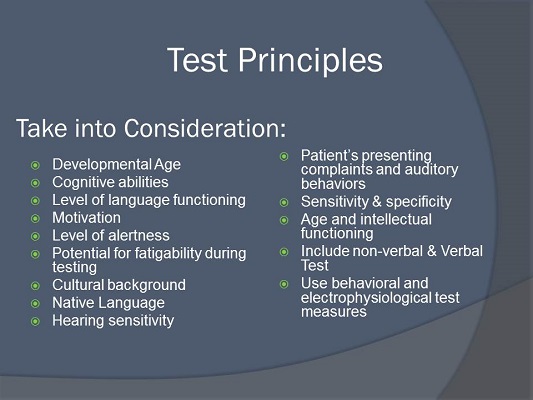
The scientific aspect about it was interesting." M.Y. "I think it was important to understand how much early phonemic awareness can affect reading and language. "I found it all to be beneficial and very practical." K.D. I also liked the parts about auditory processing disorders and the brain, especially how it relates to Autism." A.H. This course helped me better understand why. "I find it very fascinating how the brain learns to read and spell. I liked the graphs and scans that show you research-based evidence, at times it is easier to understand when you see it visually." C.M. "The evidence-based findings of specific strategies for treatment and differences related to ADHD and auditory processing disorders were good because I work with children with these kinds of difficulties.

"Course was informational and easy to follow." T.P. "Understanding the importance of using top-down and bottom-up strategies when working with children who present with auditory processing disorders to help support working memory issues." M.S. It also reinforced my intuition of increasing the intensity of some of my apraxia workouts!" M.S. Liked the visuals along with some of the bullet-style references regarding how many words, word combos, and types of words young children should have in their repertoire by 10-12 mos., 18 mos., 2yrs., 30 mos. "Good benchmarks to provide parents with a general guide as to how language and early literacy are inter-related. "I liked the overview of neuroscience and neurogenetics during each topic. "I liked the visuals, brain mapping and interventions for CAS." I.H. "Learning about neural tracks, and interventions with research indicating effectiveness was interesting." A.S. "Liked the Auditory Processing and Dyslexia sections, especially the information relating to best-practices for interventions." C.E. "I liked the visual representations of information, charts, graphs, etc." C.E. "The review of the neuroanatomy and evidence based interventions for each disorder were good." A.M. "I liked the topics on dyslexia and CAS, particularly the areas of the brain that are affected and the evidence-based interventions that work." A.H. "The dyslexia discussion was great!" J.W. "I liked the intensive neuro section." I.D. There was a great variety of scientific studies and evidence presented." M.R. "I enjoyed learning about the interventions. "The information was beneficial on how reading difficulties are linked to oral language processing difficulties, and how most of the school day is spent in oral language instructions, therefore showing children with reading difficulties will likely have a hard time at school. I liked the suggestions for evidence-based intervention." L.D.

"All of it was beneficial, especially the information on dyslexia. "I liked the discussion of various dyslexia and CAS programs." M.A. "Well rounded course, and I liked that the speaker mentions various evidence-based research to treatment." J.C. The neurologic basis the presenter provided in identifying and describing both developmental as well as acquired speech/language disorders was beneficial." S.M. "Learning how closely language development correlates with literacy skills. "I liked the specific help in explaining dyslexia and CAS to parents." J.S. "Knowledge on assessments and treatment protocols was beneficial. "The topics on apraxia and dyslexia were beneficial." M.M. I liked all the detailed information about neuroscience presented in this course." L.R. "I enjoyed learning about the different evidence-based approaches to assess and treat dyslexia and apraxia of speech.

We don't tend to hear much about this once we have graduated university." J.B. The section on APD was a total refresher for me as an SLP. "Discussion on causes, assessment and treatment of Auditory Processing Disorders was beneficial.


 0 kommentar(er)
0 kommentar(er)
